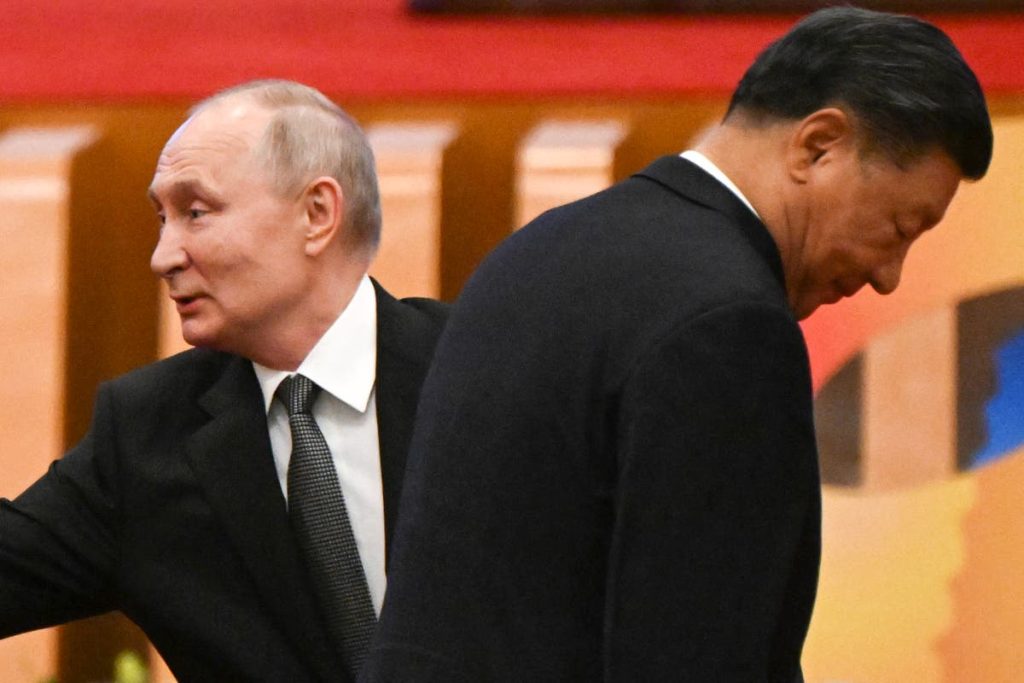U.S. Officials Stress Human Control Over Nuclear Weapons to China and Russia

In a recent online briefing, a senior U.S. official stressed the importance of maintaining human control over nuclear weapons. Paul Dean, a State Department arms control representative, made it clear that Washington is committed to ensuring humans have total oversight of these powerful arms.
Dean emphasized a “clear and strong commitment” from the U.S., the UK, and France, urging China and Russia to adopt a similar stance. He highlighted the importance of this norm among the five permanent members of the United Nations Security Council (P5) to uphold responsible behavior globally.
Human Control Over Nuclear Weapons
A senior US official emphasized that artificial intelligence must not be allowed to control nuclear weapons. This statement was made during an online briefing by Paul Dean, a State Department arms control official. He stressed that Washington is committed to ensuring that humans retain total control over these powerful weapons.
Dean’s remarks highlight a “clear and strong commitment” from the US, the UK, and France. “We would welcome a similar statement by China and the Russian Federation,” he said. According to Dean, it is crucial to maintain this norm of responsible behavior among the five permanent members of the United Nations Security Council (P5).
China and Russia’s Response
Officials in China and Russia have not commented on Dean’s statements yet. However, in February, China called for the largest nuclear powers to first negotiate a no-first-use treaty. This indicates a potential preference for reducing nuclear tensions.
Last year, Russian President Vladimir Putin announced the suspension of Russia’s participation in a key nuclear arms control agreement with the US. This move appeared to signal a warning regarding the use of nuclear weapons in the Ukraine conflict.
The suspended treaty, known as the new START agreement, allowed for mutual inspection of nuclear facilities between the US and Russia. It was last extended in 2021 and is set to expire in 2026. This agreement is crucial for maintaining transparency and reducing nuclear risks between the world’s two largest nuclear powers.
US-China AI Talks
Recently, US Secretary of State Antony Blinken and Chinese Foreign Minister Wang Yi held bilateral talks on the spread of artificial intelligence technology. They agreed to hold their first high-level bilateral talks on AI risks and safety in the coming weeks. This step aims to manage the growing concerns around AI deployment in sensitive areas.
President Biden’s administration is keen on deepening discussions with China on nuclear weapons policy and AI development. However, despite the resumed discussions in January, no formal arms control negotiation has been agreed upon yet. This ongoing dialogue indicates a mutual interest in normalizing military communications between the two nations.
Importance of Human Control
The emphasis on human control over nuclear weapons is seen as a vital norm of responsible behavior. Allowing AI to make decisions on nuclear deployments could lead to catastrophic consequences. Hence, maintaining human oversight is essential for global security.
AI technology, while beneficial in many areas, poses significant risks if integrated into military systems without proper checks. The unpredictability of AI responses in high-stakes situations is a major concern for global leaders. Therefore, the call for human control over nuclear weapons is not just a precaution but a necessary measure to prevent potential disasters.
Dean’s appeal to China and Russia underscores the importance of a unified stance among the P5 nations. This collective approach is crucial for setting international norms and ensuring that AI advancements do not compromise global security.
Background on Nuclear Arms Control
Nuclear arms control has always been a contentious issue among world powers. The new START treaty, in particular, has played a significant role in reducing the nuclear arsenal of the US and Russia. This treaty has been a cornerstone of nuclear arms control, preventing an arms race and promoting transparency.
The suspension of Russia’s participation in the treaty has raised concerns about a possible escalation in nuclear tensions. This development underscores the importance of maintaining and renewing such agreements to ensure global stability. Therefore, the recent US call for human control over nuclear weapons is timely and relevant.
The history of nuclear arms control shows that agreements like the new START treaty are not just diplomatic formalities but essential tools for maintaining peace. These treaties provide mechanisms for verification and compliance, which are crucial for building trust among nuclear powers.
Future Implications
The future of nuclear arms control and AI integration in military systems remains uncertain. The evolving nature of technology and international relations makes it imperative for nations to adopt proactive measures.
Human control over nuclear weapons is a non-negotiable aspect for the US and its allies. Ensuring this control will require continuous dialogue and cooperation among the P5 nations. The role of AI in military systems will have to be carefully regulated to prevent unintended consequences.
The ongoing discussions between the US and China on AI safety and nuclear policy are positive steps towards a safer future. However, the global community must remain vigilant and proactive in addressing these critical issues.
Global Security and Responsibility
Ensuring global security is a shared responsibility among all nations. The integration of AI into military systems should be approached with caution and responsibility. The potential risks associated with autonomous decision-making in nuclear deployments cannot be overlooked.
The call for human control over nuclear weapons is a reminder of the importance of responsible behavior in the international community. It is crucial for all nations, especially nuclear powers, to prioritize global security over technological advancements.
Global leaders must work together to establish norms and regulations that prevent the misuse of AI in military systems. This collective effort is essential for maintaining peace and stability in an increasingly complex world.
Conclusion
In conclusion, the US has made a strong case for maintaining human control over nuclear weapons. This stance highlights the importance of responsible behavior among nuclear powers and the need for continuous dialogue and cooperation to address emerging technological challenges.
In summary, the United States underscored the critical need to maintain human control over nuclear weapons. This stance is pivotal in promoting responsible behavior among nuclear-armed nations and addressing the potential risks posed by integrating artificial intelligence into military systems.
The U.S. efforts in engaging China and Russia reflect a broader goal of ensuring global security and stability in an era of rapid technological advancements. Continuous dialogue and cooperation remain essential in navigating these complex challenges and safeguarding the future.





